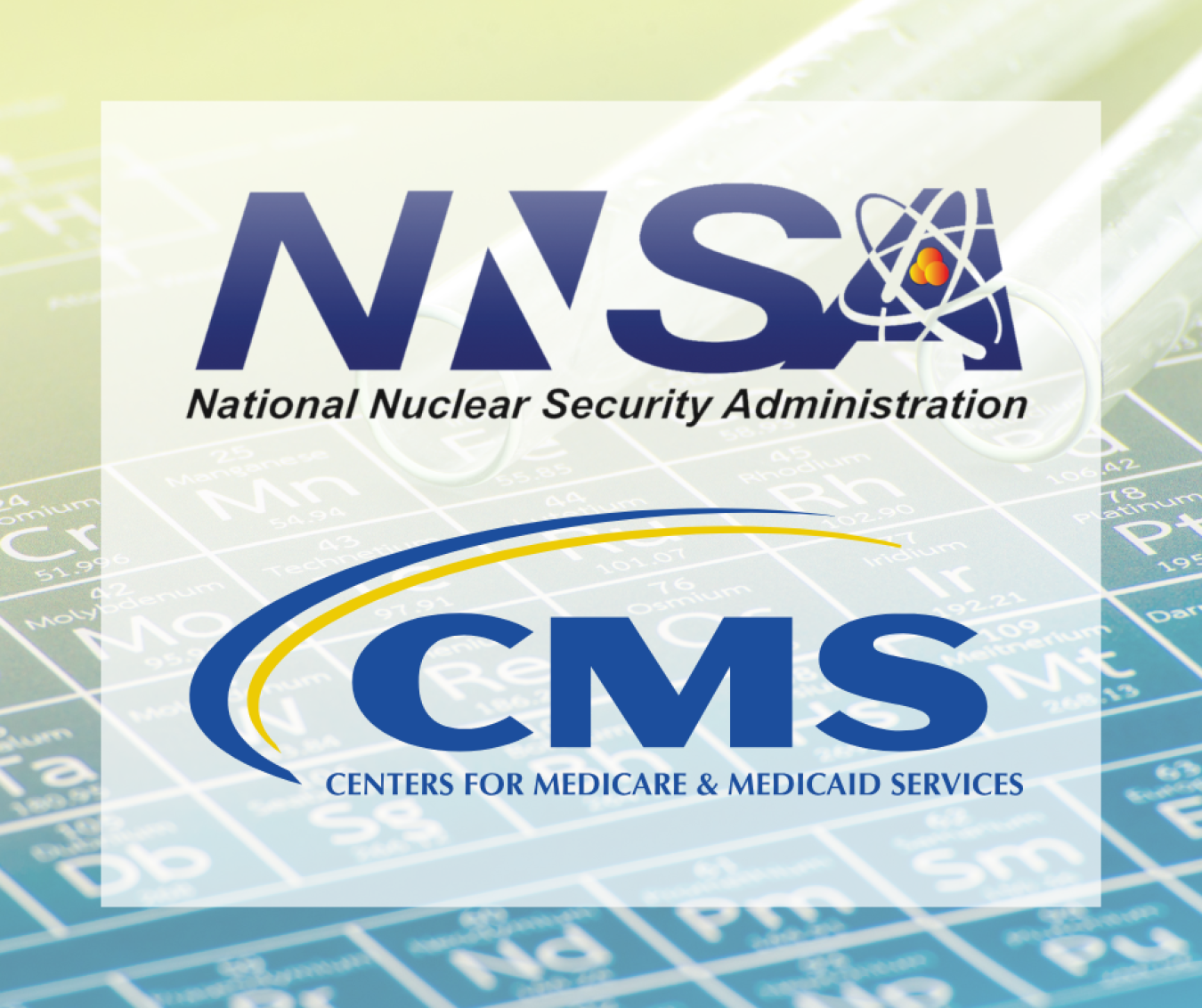NNSA and Department of Health and Human Services’ Centers for Medicare & Medicaid Services work together to support manufacturing Mo-99, a key diagnostic tool for doctors that is administered in the U.S. 40,000 times a day.
National Nuclear Security Administration
September 8, 2025
WASHINGTON – The U.S. Department of Energy’s National Nuclear Security Administration (NNSA) and the Department of Health and Human Services’ Centers for Medicare & Medicaid Services (CMS) are announcing new actions to support domestic production of the vital medical isotope molybdenum-99 (Mo-99).
“We’ve spent years working with U.S. companies to reshore Mo-99 production using advanced technology that doesn’t require weapons-usable nuclear material,” said Kasia Mendelsohn, NNSA’s Acting Deputy Administrator for Defense Nuclear Nonproliferation. “But NNSA hasn’t been alone in its efforts. Other agencies and departments are a big part of aiding the rebirth of this innovative U.S. industry.”
“We’ve spent years working with U.S. companies to reshore Mo-99 production using advanced technology that doesn’t require weapons-usable nuclear material. But NNSA hasn’t been alone in its efforts. Other agencies and departments are a big part of aiding the rebirth of this innovative U.S. industry.“
-- Kasia Mendelsohn, NNSA’s Acting Deputy Administrator for Defense Nuclear Nonproliferation
Mo-99 is used to produce technetium-99m (Tc-99m), which is a radiopharmaceutical used in over 40,000 medical procedures in the United States each day. Tc-99m has diverse medical applications but is especially important for the diagnosis of heart disease and cancer. For decades, the United States had no capability to produce Mo-99 domestically, relying entirely on imports from aging production facilities overseas. Unexpected outages at these foreign production facilities have resulted in shortages for U.S. patients.
Historically, most of this imported Mo-99 was produced using highly enriched uranium (HEU). HEU is a proliferation-sensitive material that, if diverted or stolen, could be used in a nuclear weapon. To address these concerns, NNSA helped foreign partners convert Mo-99 production from HEU to high-assay low-enriched uranium (HALEU). All major global Mo-99 producers now use HALEU targets, and the United States has ended exports of HEU for use in medical isotope production, a major nonproliferation achievement.
In parallel, NNSA has provided financial and technical support to U.S. companies to establish the capability to produce Mo-99 domestically without the use of HEU. This support is provided pursuant to the American Medical Isotopes Production Act of 2012. U.S. companies have made significant progress in constructing Mo-99 production facilities but have encountered challenges with financing and commercialization.
The urgency to establish a domestic capability to produce Mo-99 was underscored by a 2024 event in which two overseas production reactors were simultaneously shut down (one scheduled and one unscheduled), resulting in a major global shortage of Mo-99 with significant impacts across the United States.
Despite commercialization challenges, the U.S. Government is committed to supporting U.S. companies in establishing a sustainable domestic supply of this vital medical isotope. Over the last year, U.S. Government agencies have taken the following actions:
- NNSA has selected SHINE Technologies, LLC (SHINE) for $32 million in funding and expects to finalize the award by December 2025 to support completion of the company’s Mo-99 production facility in Janesville, Wisconsin. The facility is currently approximately 75% complete. This funding will support SHINE’s efforts to complete the construction required for initial Mo-99 production.
- In July 2025, CMS issued the Calendar Year 2026 Medicare Hospital Outpatient Prospective Payment System and Ambulatory Surgical Center Payment System proposed rule. The proposed rule includes a $10 add-on payment for radiopharmaceuticals derived from domestically produced Mo-99 starting January 1, 2026. This would encourage hospitals and certain other providers to use domestically produced Tc-99m radiopharmaceuticals when available by addressing the cost difference between domestic and foreign sources.
“The planned add-on payment will be a win-win for medical care providers and the U.S. Government,” said Chris Klomp, CMS Deputy Administrator and Center for Medicare Director. “It will help to ensure fair payments to providers while also advancing the U.S. policy goal of producing the vital medical isotope molybdenum-99 domestically, instead of relying solely on imports.”

